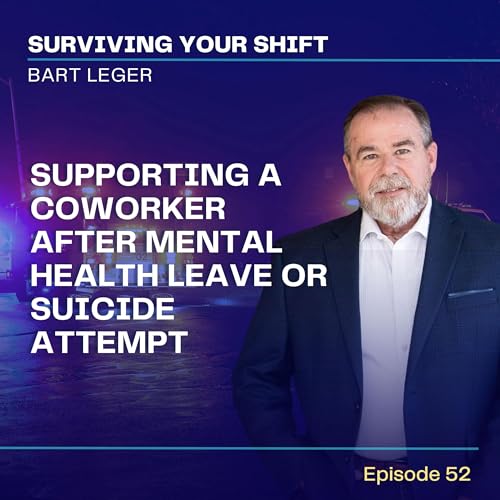Christmas can be beautiful and painful, especially on the front lines. This short Christmas special reflects on the birth of Christ, the reality of working through the holidays, and how to find hope and peace, whether or not you celebrate the season the same way.
You might be listening to this on your way to shift, in the bay between calls, or at home trying to catch a quiet moment during a busy season. Christmas looks different when you work in law enforcement, fire, EMS, dispatch, corrections, or the hospital and Emergency world.
Some of you are working doubles while your family opens presents without you. Some are carrying grief or loneliness into a season that’s “supposed” to be happy. And some of you don’t celebrate Christmas the same way I do, or at all, but you’re still navigating the pressure, expectations, and emotions that come with this time of year.
In this special episode, we step away from training models and talk about the heart of Christmas. From my Christian faith perspective, we’ll look at the birth of Christ, God coming close in the middle of a messy, broken world, and what that means for those of us serving on the front lines today.
BY THE TIME YOU FINISH LISTENING, YOU’LL BE ENCOURAGED TO:
- See Christmas as a reminder that you’re not alone, even in dark or difficult seasons
- Find small moments of peace, presence, and gratitude in the middle of busy shifts or complicated family situations
- Give yourself permission to feel what you’re feeling this year, while still holding onto hope
- Whether you share my faith or not, this episode is meant to be a few minutes of encouragement: a chance to breathe, to remember your value beyond the job, and to be reminded that light still shines in dark places.
SHARE THIS EPISODE:
https://www.survivingyourshift.com/50
OTHER LINKS MENTIONED IN THIS EPISODE:
StressCareDoc.com
Schedule a Discovery Call
https://stresscaredoc.com/consultation
Connect with Bart
LinkedIn: linkedin.com/in/bartleger
Facebook Page: facebook.com/survivingyourshift
Website: www.survivingyourshift.com
Want to find out how I can help you build a peer support program in your organization or provide training? Schedule a no-obligation call or Zoom meeting with me here.
Mentioned in this episode:
CISM Individual Lake Charles Training
This Assisting Individuals CISM training gives you a clear, proven framework for supporting individuals after difficult calls, losses, or traumatic events, without turning the conversation into therapy. Learn when and how to use the Assisting Individuals model appropriately, practical skills for one-on-one crisis support after critical incidents, and how this training fits into a strong peer support or CISM program. Training Dates: January 15–16, 2026 Location: Lake Charles, Louisiana Host: With You SWLA Underwritten By: Crisis Response Care Cost: $50 Register at https://www.survivingyourshift.com/individual
 9 m
9 m 17 m
17 m 20 m
20 m 18 m
18 m 22 m
22 m Dec 25 202510 m
Dec 25 202510 m Dec 18 202522 m
Dec 18 202522 m Dec 11 20259 m
Dec 11 20259 m
